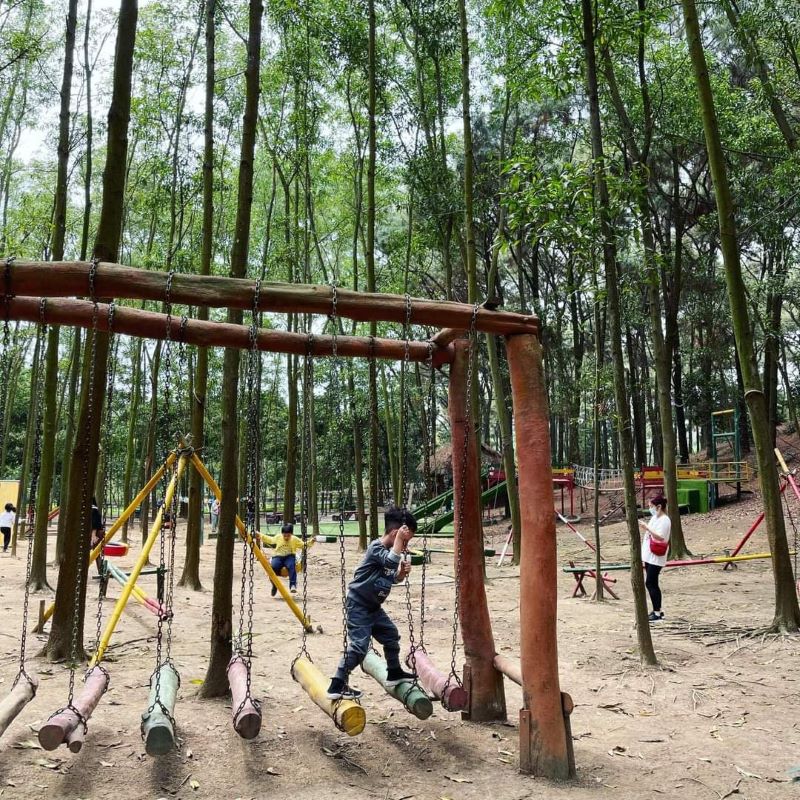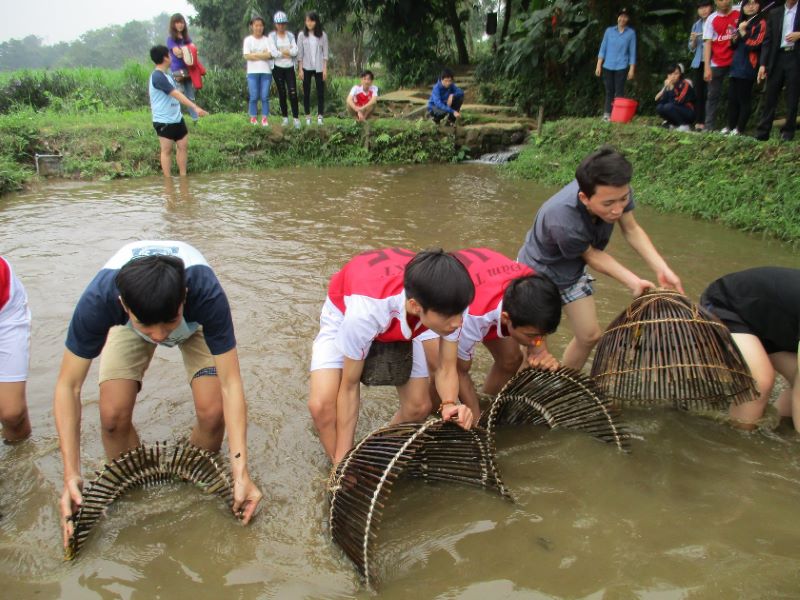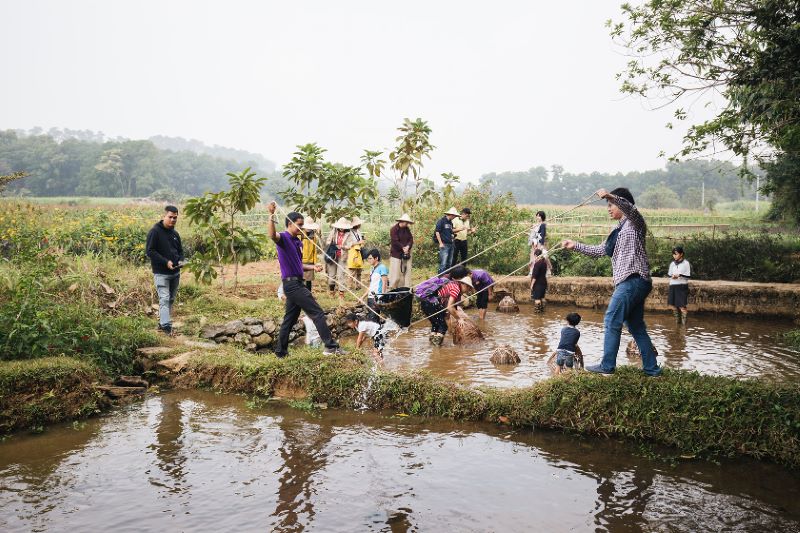Hanoi is promoting agri-tourism for sustainable tourism development
More and more models of farm tourism have been applied in suburban districts of Hanoi, attracting a large number of tourists in recent years.
Hanoi is promoting agricultural tourism or green tourism as it benefits the local communities and the natural environment, according to Dang Huong Giang, Director of the Hanoi Tourism Department.
| Hanoi pupils take part in group activities in Ban Rom Ecotourism Area in Soc Son District, Hanoi. Photo: Du lich Sinh thai Ban Rom |
A large potential...
Hanoi has a large potential to develop agri-tourism, thanks to its diverse terrains and rich culture and local identities, according to Ta Van Tuong, Deputy Director of Hanoi Department of Agriculture and Rural Development.
Accordingly, agri-tourism products in Hanoi focus on exploring wet-rice culture and civilization of the Northern Delta, craft villages, local habits, and customs, as well as weekend countryside vacations in the suburbs and surrounding areas.
Recently, many models of agro-ecological farms have been set in association with tourism and education such as Ban Rom Ecotourism Area (Quang Tien Commune, Soc Son District); Ba Vi Homestead, Ba Trai Tea Farm, and Herbal Village of Dao Ethnic People (Ba Vi District); and Van An School Farm (Thanh Tri District).
“Coming to these places, visitors not only enjoy the fresh air of the countryside but also experience farming works and enjoy fresh products at the farms,” Tuong said, “it attracts a lot of people, especially families and schools, paving a new way for tourism development in the suburbs of the capital city.”
The playground Ban Rom Ecotourism Area in Soc Son District, Hanoi. Photo: Du lich Sinh thai Ban Rom |
Ngo Kieu Oanh, the owner of Ba Vi Homestead, told The Hanoi Times that her place was usually full of visitors on weekends and holidays before the Covid-19 pandemic.
“We welcome both local people and foreigners. Through typical farming work like ploughing and planting rice seeds, picking tea leaves, or feeding cows and goats, our visitors, especially children can learn about cultivating and livestock breeding,” she said.
In addition, Hanoi’s traditional craft villages are also alluring to tourists for their long-standing cultural values and the creativity of artisans through each typical handmade product. Ancient villages on the outskirts of Hanoi are also another advantage to diversify agricultural and community tourism products, which provide tourists interesting experiences of visiting local farmers and living their lives.
Therefore, the development of agri-tourism brings many socio-economic benefits to Hanoi, according to Giang. “It not only contributes an important part to promoting the recovery of Hanoi's tourism sector after the Covid-19 pandemic but also diversifies rural work, creates jobs, increases people's income, and reduces migration pressure into the city, at the same time preserve and promote traditional cultural values and local living standard,” she said.
| Visitors to Ba Vi Homestead, Soc Son District, Hanoi. Photo: Ba Vi Homestead |
...is necessary to be promoted
At the moment, however, Hanoi’s agri-tourism has not exploited all of its advantages, according to experts.
As agri-tourism was not fostered previously, it has a lot of shortages, according to Tran Trung Hieu, Deputy Director of the Hanoi Department of Tourism.
“We have a small number of enterprises in agricultural and rural tourism. The professional human resources for rural tourism activities are also limited. Besides, the rural infrastructure system in many places is still poor and not convenient for tourists,” he said.
Meanwhile, Nguyen Van Tai, Director of Vietsense Travel Company, said that there was also a shortage of diverse and unique agri-tourism products as they were very similar among localities. “Along with that, the connection between the local authority, people, and travel businesses is still weak to create a push for the development of this type of tourism,” he told The Hanoi Times.
| Ba Vi Homestead is one of the renowned agroecological farms in Hanoi. Photo: Ba Vi Homestead |
Currently, the Hanoi Department of Tourism has been building a draft plan for rural agri-tourism and economic development associated with the new-style rural area in Hanoi for the period 2021-2025, in order to create favorable conditions to promote Hanoi’s tourism industry.
“It will focus on building policies to develop agricultural tourism, especially on land and accommodation management, infrastructure, and develop a map of agri-tourism in Hanoi city which indicates areas capable of developing typical tourism products so as to build the city’s agri-tourism itineraries,” Giang said.
At the same time, the city would also develop tourism products based on diversity, uniqueness, and added value, in association with the OCOP Program.
It also strives to improve tourism service quality in order to increase tourists’ stay and spending in the locality, strengthen promotion and communication with domestic tourists and tourism enterprises, apply digital technology more aggressively in advertising, enhance the quality of human resources through training courses for rural workers, and strengthen the role of the community in the agri-tourism development.
















